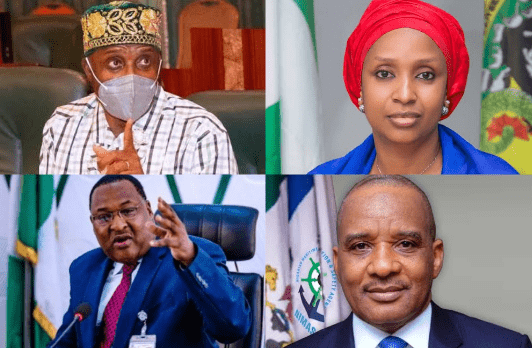
Do politicians break their promises once in government? Yes they do. The evidence stack high against Nigerian politicians and their appointees. Conventional wisdom holds that politicians cannot be trusted to keep their promises. This is true for the maritime industry, which will record 2020 as a year of failed promises. Perhaps the industry has become accustomed to not expecting fulfillment of political promises.
For the records, none of the many pledges and undertakings made by politicians and political appointees in 2020 to address the numerous ills facing the industry is anywhere near being fulfilled.
For many political appointees, playing to the gallery and gaining cheap media mentions appear to be fashionable and more desirable than walking the talk. The result? Nigeria’s maritime industry remains in the doldrums.
The litany of failed promises include the letdown with regards to the disbursement of the Cabotage Vessel Financing Fund (CVFF) by both the Minister of Transportation Rotimi Amaechi and the Director-General, Nigerian Maritime Administration and Safety Agency (NIMASA), Bashir Jamoh; failure to address rapidly escalating insecurity in the maritime domain; and the failure to achieve the self-imposed goal of setting up a national carrier.
The Director-General of NIMASA, who took office in March 2019 with series of promises to stakeholders, particularly left many disappointed by his inability to fulfill even the simplest of his promises – putting the agency’s idle N50 billion floating dock wasting away in Lagos to productive use.
The Nigerian Ports Authority’s political head, Hadiza Bala Usman did not fare any better. The Apapa gridlock remains a sour point for the former BBOG activist. The conversion of Lilypond to a truck park, the several attacks, threats and counter-threats to shipping companies and all did little to address the perennial gridlock on the port access roads. That the gridlock was better managed by her predecessors point to a lack of tact on the part of the present NPA management in addressing issues concerning the ports.
The Nigerian Shippers Council (NSC) Executive Secretary, Hassan Bello, has been big on talks but small on delivery. NSC under Bello has been unable to deliver any of the Inland Container Depots (ICDs) it concessioned to build in the hinterland. More than ten years after his predecessors conceived of the idea, Nigeria cannot boast of one functional NSC-driven ICD anywhere in the country. Not even the simple truck transit parks promised by Bello’s NSC has seen the light of day.
With regards to the development of multimodal system of transportation, Nigerians are, by now, used to missed deadlines on the delivery of railway by the Minister of Transportation. Needless to say that he has not been able to meet any of the deadlines he set for himself on the delivery of the Lagos-Ibadan standard gauge railway. The failed deadlines transcend the era of COVID-19 pandemic, which has become a convenient excuse for non-performance.
Finally, in the wake of the COVID-19 pandemic, the Federal Ministry of Transportation promised to disburse N10 billion as palliatives to transporters in the country. The promise was made in August by Minister of State Gbemi Saraki. Four months after the promise was made and celebrated in the media, nothing more has been said about it by the Ministry.
Read more on the failed promises:
Amaechi’s failed promise on maritime security and disbursement of Cabotage Vessel Financing Fund
Bashir Jamoh’s failed promise on disbursement of Cabotage Vessel Financing Fund
Bashir Jamoh’s failed promise on idle floating dock
Failed promise on national carrier
Failed promises to address Apapa gridlock
Hassan Bello’s failed promises on ICDs
Amaechi makes another volte-face on Lagos-Ibadan rail delivery
Failed promise on N10bn for transport sector